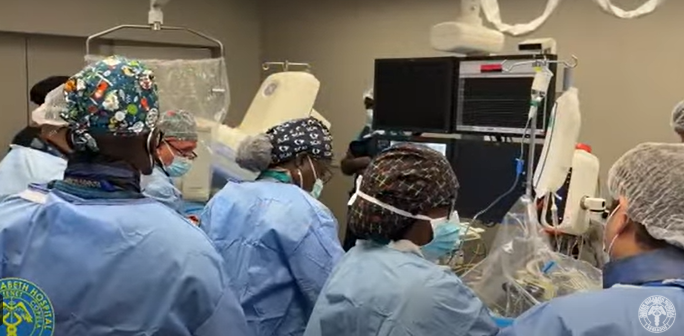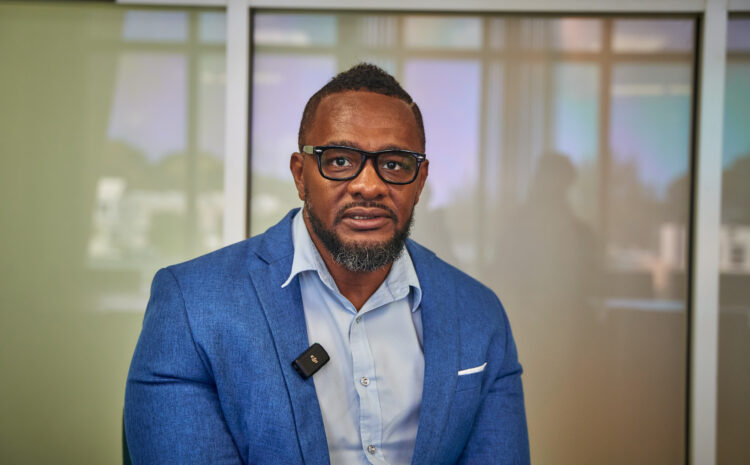On January 4, 2022, I had the privilege to attend the planting of a Peace Pole on the Cave Hill Campus, The University of the West Indies (The UWI). The Campus was indeed honoured to have been selected by the International Peace Pole Project, through the intermediation of the Rotary Club of Barbados South, to plant the first such Peace Pole in Barbados. The Peace Pole Project was founded in Japan in 1955 by Masahisa Goi, who, in horror at the devastation caused by World War II, devoted himself during his lifetime to promoting peace through the planting of Peace Poles across Japan and later globally. Each Peace Pole is a symbol of peace, inscribed with the message, “May Peace Prevail on Earth” in multiple languages.
As a campus, we knew exactly where the Peace Pole needed to be planted: at the Quaw’s Quest Monument. Quaw’s Quest commemorates the 295 enslaved Africans who were alive at the time of Emancipation on the plantations that existed on the lands of the present-day Cave Hill Campus. The monument celebrates William Quaw, who, in the nine years of life that remained to him after gaining his freedom in 1838, embarked on a quest for self-advancement and social enlightenment, teaching in Sunday School at the nearby St Stephen’s Church and becoming a sexton.
In my remarks to the Peace Pole ceremony, I noted that there can be no peace in society without three basic freedoms:
the freedom from bondage of any kind;
the freedom of expression, including at the ballot box;
the freedom to disagree peacefully.
The first two freedoms are perhaps self-evident. William Quaw was denied freedom from bondage, having been sold into slavery and shipped to Barbados as a three-year-old in 1800. Freedom of expression, including at the ballot box, took another 113 years after Emancipation before all Barbadians were granted the right to partake freely in a General Election. But the third freedom, the freedom to disagree peacefully, is perhaps the battle of our times in the 21st Century.
A toxic mix of online hate speech, trolling, cyberbullying, and censorship is eroding this third freedom. Ever more extreme views are becoming the norm in our social media feeds, as tech companies monetise the “engagement” factor. Now, I will admit freely that as a community of scholars, The UWI is never averse to some disagreement! In fact, I would go further than that: a university could not actually exist without disagreement. Let me explain.
Disagreement is central to the process of knowledge creation in universities, as scholars and students test the validity of each other’s assumptions and hypotheses. Indeed, the scientific method is underpinned by the so-called “falsification principle” articulated by philosopher Carl Popper. This states that for a theory to be considered scientific, it must be formulated into a hypothesis that is both testable and capable of being proven false. The freedom to disagree with someone in a peaceful manner is therefore a fundamental pillar of academia. The difference, of course, is that debate within universities is structured to be respectful and desirous of hearing contrary viewpoints, in contrast to the proliferation of extreme content in the online world, which is not interested in giving space to hear contrary viewpoints.
University campuses around the world, therefore, have a key role to play at this juncture to demonstrate how critical discourse can be conducted, through respectful yet robust public debate, for the advancement of knowledge and social enlightenment. The role of a university is to create the largest possible didactic space in society — through research, advocacy and debate — to allow the many diverse voices and viewpoints in society to find a space to be heard and listened to respectfully and, yes, sometimes disagreed with peacefully.
It is ironic that in our so-called “information age”, we should be living in an information space so polluted with misinformation and disinformation (disinformation being deliberate and designed to harm), that it has become almost impossible for the average citizen to discern the epistemic truth of any item of information they are consuming. The University of the West Indies, through its Statutes and Ordinances, remains committed to the key principles of freedom of expression, but also the freedom to disagree with someone in a respectful manner. The UWI’s Statement of Ethical Principles and Code of Conduct inter alia states the following: “Academic freedom is fundamental in facilitating teaching, research and scholarship and therefore is recognised and protected by the University. It facilitates freedom of intellectual thought, which consists of an open exchange of ideas, right to freedom of inquiry, and to be able to freely criticise, support and/or challenge belief structures in society and participate in activities that involve freedom of intellectual thought.”
By upholding the principles and conduct of authentic debate, especially the right to hear contrary viewpoints, The UWI is performing a critical function to strengthen the public discourse in Caribbean society.
With the voices of intolerance and disharmony certainly dominating our news headlines, it becomes ever more important for universities and wider society to defend and uphold the principles of freedom of expression and tolerance. In the best of this tradition, I felt quite uplifted when attending the multi-faith Annual Service to Mark the Opening of the Legal Year held on Monday, September 15, at the St Michael’s Cathedral, Bridgetown, in the presence of the President of Barbados, The Most Honourable Dame Sandra Mason. The theme of the service was Walking Together: Human Life and Civic Responsibility. This theme was not mere sentiment. The four readers at the ceremony were drawn from the Jewish, Muslim, Hindu and Christian faiths, and each cited thoughtful readings from their respective holy books in support of a peaceful and just society. It is by such demonstrations of inclusion and respect that the democratic project is buttressed and allowed to flourish.
Every institution and every citizen has a role to play in promoting the freedoms which underpin a peaceful and free society in Barbados: freedom from bondage of any kind, which includes violence; freedom of expression, including at the ballot box; and the freedom to disagree peacefully. I have highlighted the role of the university in upholding the third freedom, the freedom to disagree peacefully. But we are all aware when we look around us at the positive actions undertaken by people of goodwill, who are too numerous to count, within our families and communities in furtherance of peace and freedom in society. We must not become despondent, especially at times when conflict and intolerant viewpoints tend to dominate our news cycle. I remain confident in the knowledge that through the positive actions and good works by the majority of people in society — who reject violence while supporting the victims of violence, who are fully engaged in the democratic process while respecting the principle of freedom of expression, and who reject intolerance and thereby uphold the freedom to disagree in a peaceful manner — we can fulfill the promise of the Peace Pole: May Peace Prevail on Earth.
Professor Clive Landis is Principal of The UWI Cave Hill Campus.
The post The freedom to disagree peacefully appeared first on Barbados Today.


